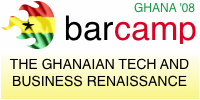
The development community is experiencing an explosion of interest in providing low cost devices, such as laptops, to students in developing countries. infoDev is now working to develop a web-based “community of practice” that will share lessons among the different initiatives.
Some thirty years ago, most computer use consisted of a mainframe computer and a host of “dumb terminals” in which the processor time was “shared” between users. Each user had a monitor and keyboard and accessed the computing power and memory of the central mainframe computer that occupied a purpose built, air-conditioned computer room.
Starting in 1981, with the development of personal computers (PCs), that model began to change as the computer came out of the closet and began to colonise the deskspace of individual users. As both computer processing and memory became progressively cheaper, the goal became one PC per desk, then a computer in every home and, latterly, the mantra in education has been to provide one computer per child. But when Macedonia set itself the goal of providing a computer for each of the 360’000 students in this newly independent nation, it decided to revert to the old model of shared computer time. Why Macedonia took this seemingly backward step was explained in a brown bag lunch on 6 October, organized by infoDev and the Education Sector of the World Bank’s Human Development Network.
The Macedonian Government’s “Computer for every student” initiative chose a solution based on “desktop virtualization” where the computer power of each PC is shared by seven students, each of whom has their own screen, keyboard, mouse and virtual desktop. The solution, provided by nComputing, a US company, works out at US$70 per student “seat” (excluding monitor etc) and runs open source software using LINUX. The advantages for the schools include the low initial capital costs, but also a reduced budget for electricity, air conditioning, maintenance and training. When the system needs upgrading, the costs are less than 15 per cent of what would have accrued if a PC had been supplied to every student.
Although it might seem like a retrograde policy, Macedonia’s choice was based on the reality that most educational applications employ just a tiny fraction of the computer power of a modern PC. The timesharing of 30 years ago was enforced by a scarcity of processing power, but today’s computer sharing is facilitated by its relative abundance.
Desktop virtualization is just one way of bringing low-cost computing to schools in the developing world. Other solutions involve so-called “thin clients”, that offer a PC with reduced functionality, or an approach based on using mass-produced components and open source software, favoured by the “One laptop per child” project.
infoDev has published an inventory of low-cost devices for education in which more than fifty such initiatives were identified (see: www.infodev.org/devices-list and www.infodev.org/devices-news).infoDev is now working to develop a web-based “community of practice” that will share lessons among these different schemes.
Tim Kelly
Lead ICT Policy Specialist












